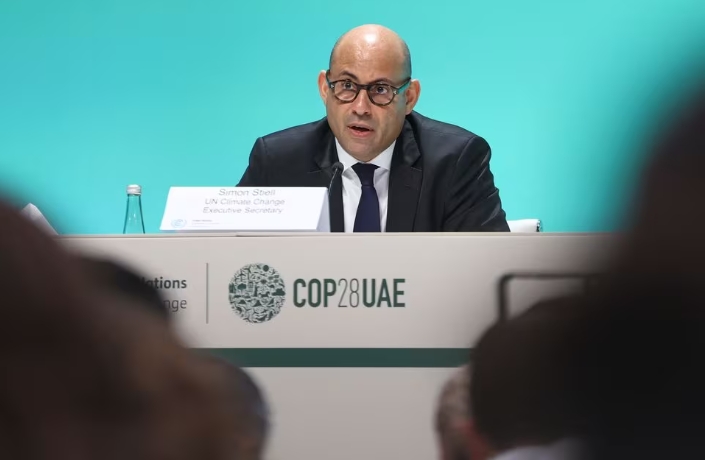
Simon Stiell, Executive Secretary of the UN Framework Convention on Climate Change, addressed a group of students at the Azerbaijan Diplomatic Academy in Baku, host of the COP29 climate summit in November, laying out the steps that need to be taken this year to turn the commitments made at last year's summit in Dubai into reality.
This was Stiell's first major speech since the UN gathering in Dubai, where nearly 200 countries agreed to begin a transition away from fossil fuels to avert the worst impacts of climate change.
"It's clear that to achieve this transition, we need money, and lots of it - $2.4 trillion, if not more," excluding China, Stiell said in prepared remarks, citing a report released in December from the High-Level Expert Group on Climate Finance.
Climate finance will be the main focus of the Azerbaijan-hosted talks, where governments will be tasked with setting a new target post-2025 for raising money to support developing country efforts to cut emissions and adapt to the worsening impacts of climate change.
Setting a new financial goal will be challenging given that countries only last year met a goal set in 2009 to mobilize $100 billion a year in climate finance by 2020.
"It's already blazingly obvious that finance is the make-or-break factor in the world's climate fight," he said, adding that without more finance, the wins achieved at the COP28 Dubai summit will fizzle out.
Stiell said the year should be spent ensuring that the global financial system and multilateral banks can meet the task of ramping up climate finance, and urged banks to triple the amount of climate grants and concessional finance by 2030 and triple the rate of private capital they mobilize.
More broadly, he cautioned against taking "victory laps" after the UAE agreement, saying that the political agreement reached in Dubai enables countries to hide behind "loopholes."
"The action we take in the next two years will shape how much climate-driven destruction we can avoid over the next two decades, and far beyond," he said.